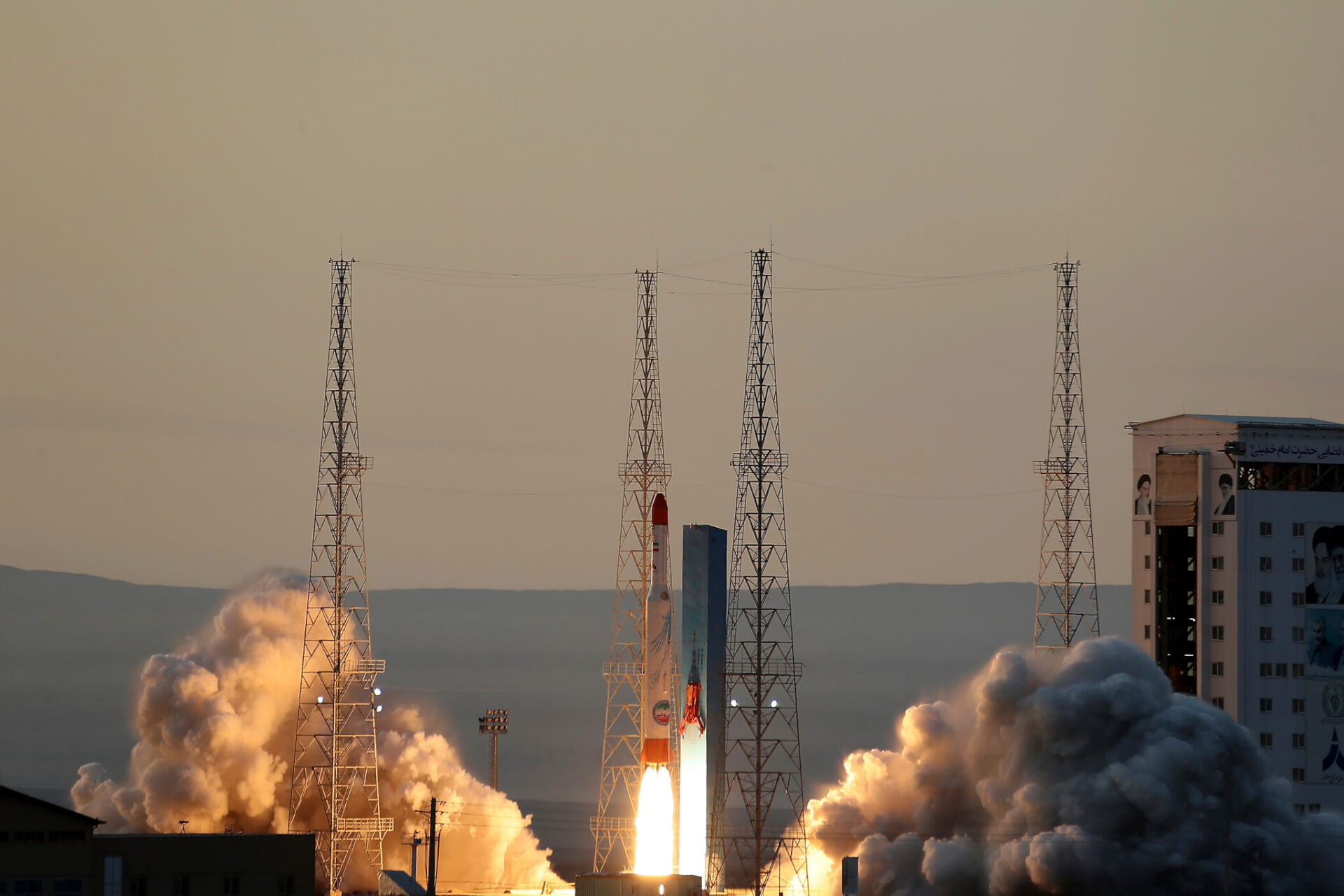Iran launched a rocket carrying three research devices to space on Thursday, the Defence Ministry said amid ongoing negotiations in Vienna to salvage the 2015 nuclear deal, also known as the Joint Comprehensive Plan of Action (JCPOA). The launch has once again raised concerns about Iran’s ballistic missile programme.
State TV showed footage of the launch and said that it took place from the Imam Khomeini Space Center in northern Iran. Defence Ministry spokesperson Ahmad Hosseini said that the launch was “carried out correctly” and that its “desired goals [were] achieved.”
“This was done as a preliminary launch [...] God willing, we will have an operational launch soon,” Hosseini said. “By developing our capacity to launch satellites, in the near future satellites with a wide range of applications [...] will be placed into orbit,” he added.
Iran has tested the Simorgh at least five times before and most of the launches have failed. In fact, Tehran’s nascent space programme has suffered a series of failures in recent years, including failed launches, launchpad explosions, and fatal fires. However, Iran has managed to send a few short-lived satellites into orbit over the last ten years and in 2013, even sent a monkey into space.
While the satellite launch does not come under the ambit of Iran’s ballistic missile programme, American intelligence agencies have raised concerns that many components in rockets like the Simorgh are capable of dual-use. According to the US, these dual-use components can be repurposed for use in ballistic missile launches.
Iran has announced it launched a rocket into space, as talks to revive the nuclear deal continue in Vienna.
— Al Jazeera English (@AJEnglish) December 30, 2021
🔗: https://t.co/Cr2IAC7iTR pic.twitter.com/tw5xA9C37d
The US has also said that such launches are in violation of United Nations Security Council resolution 2231, which calls on Iran to refrain from any activity that could advance its ballistic missile programme.
Iran, on the other hand, has stated that its rocket launches are meant for civilian purposes and do not have a military component. However, the timing of the launch is bound to raise concerns among Western countries, who has accused Iran of not being serious amid ongoing talks in Vienna to restore the JCPOA.
The West has expressed concerns about Iran’s recent nuclear moves and said that Tehran is acting in bad faith. It has also accused Iran of violating its commitments under the JCPOA and of taking escalatory measures that have resulted in a “nuclear crisis.”
Earlier this month, the IAEA accused Iran of enriching uranium with highly advanced centrifuges at its Fordow nuclear power plant. The nuclear watchdog said that Tehran has started the process of enriching uranium to 20% purity using a cluster of 166 advanced IR-6 machines at Fordow. The IAEA also reported in August that Iran has been enriching uranium to 60% fissile purity, closer to the weapons-grade level of 90%. The 2015 deal stated that Iran could only enrich uranium up to 3.67% for the next 15 years.
Moreover, the space launch closely follow Iran’s launch of 16 ballistic missiles last week as part of a five-day military exercise known as ‘Great Prophet 17,’ which was intended as a response to Israel’s threat to attack Iranian nuclear facilities. Israel remains opposed to restoring the JCPOA, as it views Tehran’s nuclear programme as an “existential threat.”
One of Israel’s major criticisms of the 2015 deal was that it did little to address Iran’s ballistic missile programme. In this respect, Israel has called on world powers to impose harsher sanctions on the Iranian military. Israel has even said that it would accept a renewed deal if it contains provisions to contain Iran’s ballistic missile programme and expanding influence in the region.

